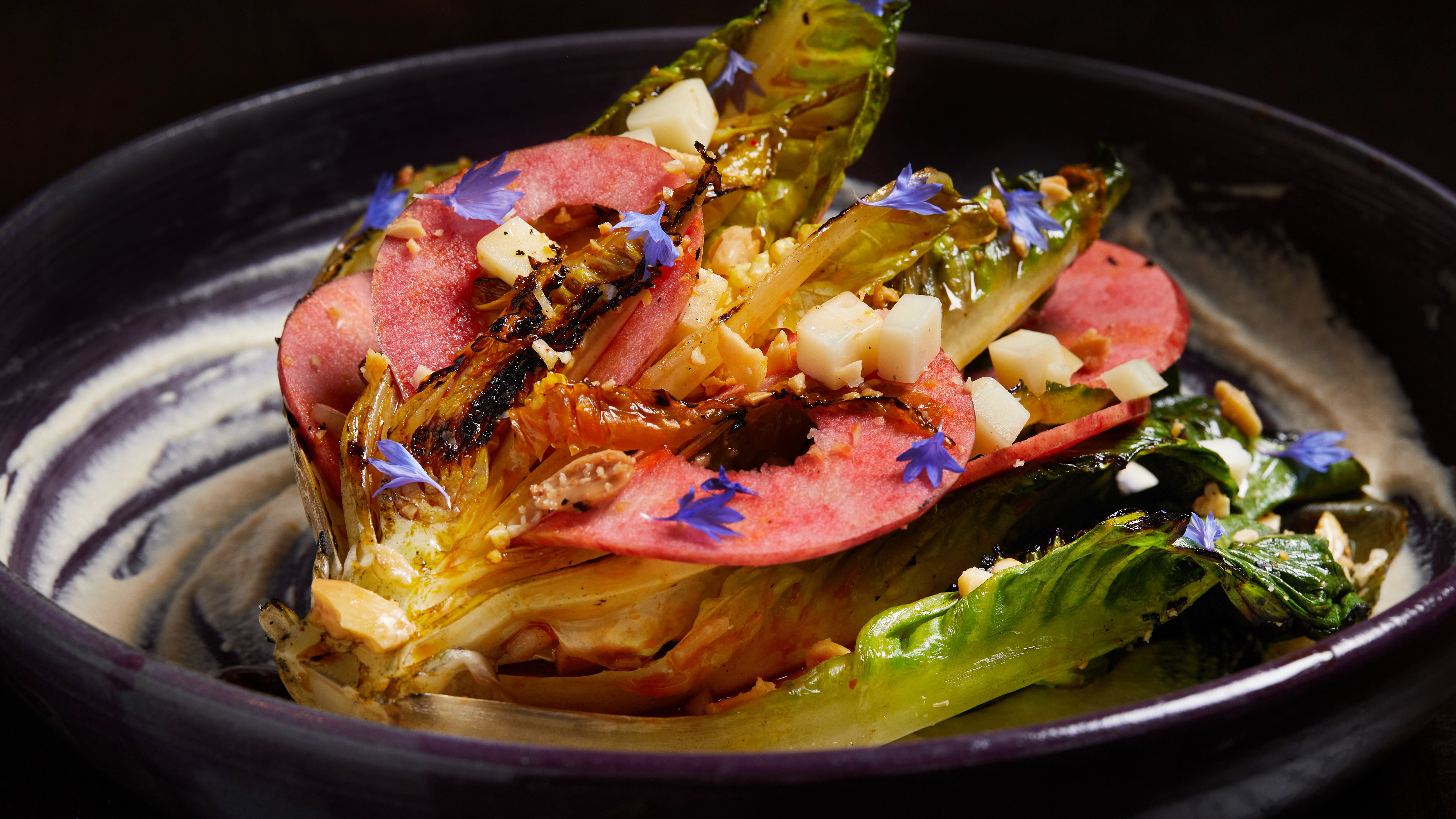How Salad Stopped Being A Punishment
Many of you probably remember salads being something people ate as sort of self-flagellation, food you ate to replace other food you feel like you shouldn't be eating. I certainly do. These days, salads just feel... different. If I'm in the mood for a bunch of crisp raw vegetables or a cool bowl of fresh fruit, the first thing I think of is a good, trusty, salad of some kind. I do not approach salad with resignation, or feel like it's a slap on the wrist for generally eating like shit. I just really like fresh produce.
This piece by food historian Bee Wilson in the Wall Street Journal revisits the evolution of salads from punitive staples of dieting and Jell-O-based curiosities to fresh concoctions that, as Nigella Lawson put it, "add poetry to the prose of everyday life."
If you ask me what radicchio is, I'd point to the reddish leaf in your salad mix. And if you wanted me to point out some arugula too, I'd be happy to do so. These are normal ingredients for everyone now, but it wasn't so until the '70's (which was before my time). But just like ingredients come up, some fall, like wild rice and raspberry vinegar (the examples Wilson uses). Some make comebacks, notably iceberg lettuce, which was an ingredient people scoffed at until wedge salads got popular again.
Part of what makes a salad modern is the addition of raw ingredients you'd normally consider a cooked vegetable; take beets and Brussels sprouts for example. It's not unusual to see raw versions of each in a salad tossed with vinaigrette now. So all of this is worth considering, thinking of the way we approach salad these days, more as a joy than a burden. Check out the piece here, and feel good about those fresh greens, because they've come a hell of a long way.
